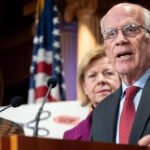Tuesday, April 23`, 2025
Year : 2, Issue: 34
Reuters: Drugmakers have been warned that the Trump Administration is considering linking U.S. medicine prices to lower amounts paid by other developed countries, according to two company sources who called the option the pharmaceutical industry’s top concern.
Both sources, who were not authorized to speak publicly, said they expected the policy to come from the agency that oversees Medicare and Medicaid health programs.
The first source said he had been told directly by government health officials that they were exploring such a policy, which he described as a mid-level priority for the Trump Administration as it tries to lower drug prices.
The two sources said any such policy was more concerning to the industry than other government moves under discussion, which include tariffs on imported medicines. The first source said it is the biggest “existential threat to the industry and U.S. biosciences innovation.”
Industry trade group PhRMA earlier this year lobbied Congress on the issue, sometimes referred to as international reference pricing, according to government records.
The U.S. pays the most for drugs in the world, often nearly three times that of other developed nations. President Donald Trump has said he wants to close that spread, but has not publicly specified how. In his first term, Trump’s proposed international reference pricing program was blocked by a court.
Trump’s wide-ranging proposal five years ago was projected by his administration to save taxpayers more than $85 billion over seven years, cutting into U.S. annual spending of more than $400 billion on drugs.
“I don’t think the administration fully understands the impact that policy could have on innovation in the U.S.,” said the first source. It will “be disruptive for the entire healthcare market, not just pharmaceuticals.”
He said he expected the Medicare agency to launch a pilot of the program, after health officials said they were looking to test some drug pricing proposals.
The White House, the U.S. Department of Health and Human Services, which oversees Medicare, and PhRMA did not respond to requests for comment.







